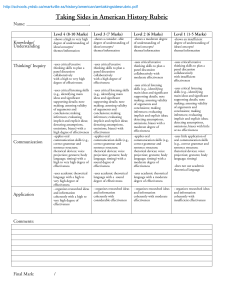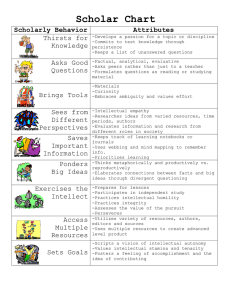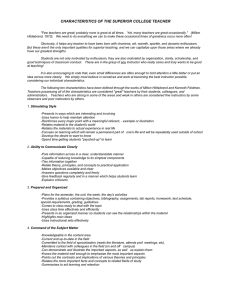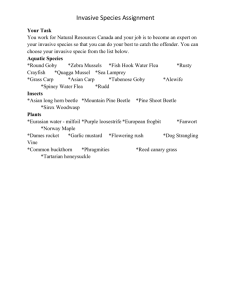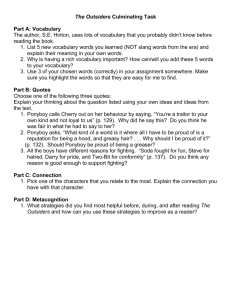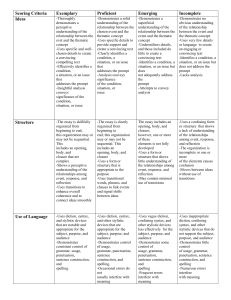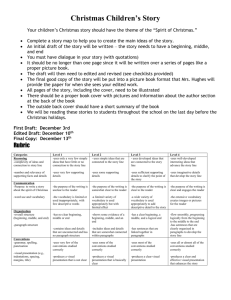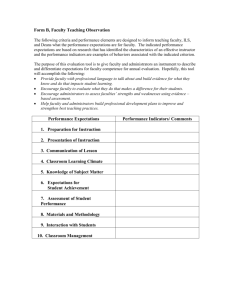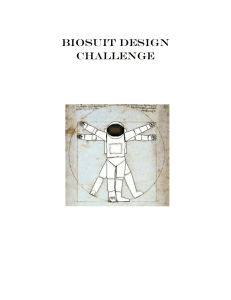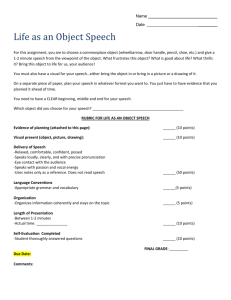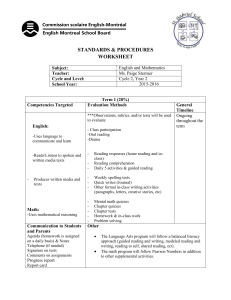Debate Topics
advertisement
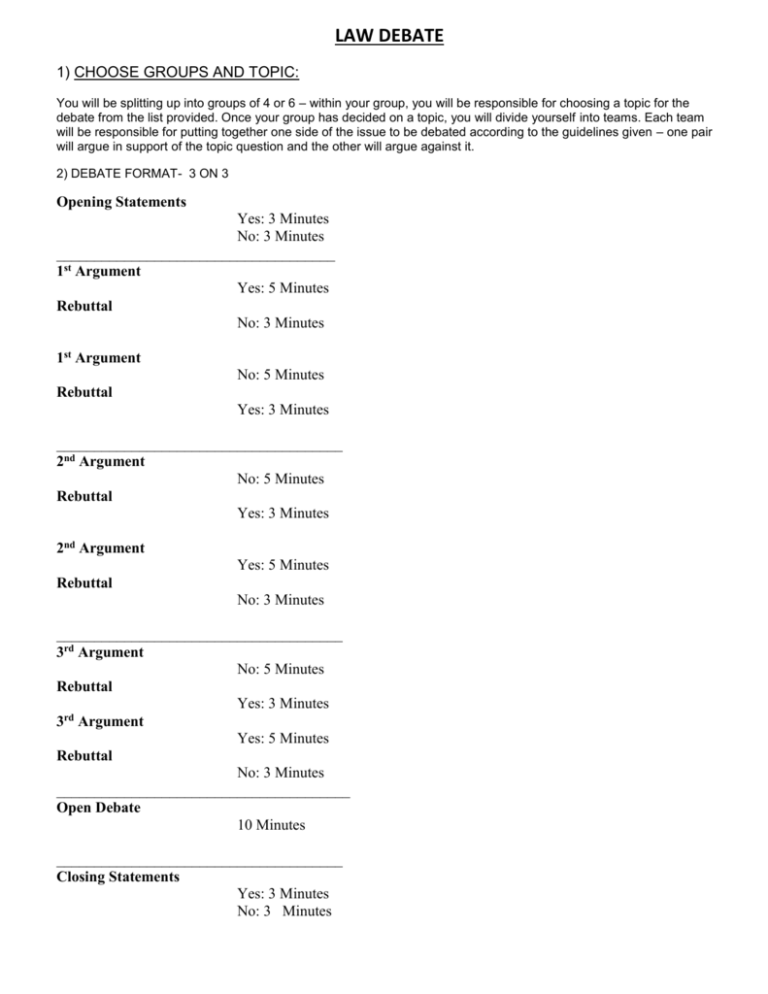
LAW DEBATE 1) CHOOSE GROUPS AND TOPIC: You will be splitting up into groups of 4 or 6 – within your group, you will be responsible for choosing a topic for the debate from the list provided. Once your group has decided on a topic, you will divide yourself into teams. Each team will be responsible for putting together one side of the issue to be debated according to the guidelines given – one pair will argue in support of the topic question and the other will argue against it. 2) DEBATE FORMAT- 3 ON 3 Opening Statements Yes: 3 Minutes No: 3 Minutes _____________________________________ 1st Argument Yes: 5 Minutes Rebuttal No: 3 Minutes 1st Argument No: 5 Minutes Rebuttal Yes: 3 Minutes ______________________________________ 2nd Argument No: 5 Minutes Rebuttal Yes: 3 Minutes 2nd Argument Yes: 5 Minutes Rebuttal No: 3 Minutes ______________________________________ 3rd Argument No: 5 Minutes Rebuttal Yes: 3 Minutes 3rd Argument Yes: 5 Minutes Rebuttal No: 3 Minutes _______________________________________ Open Debate 10 Minutes ______________________________________ Closing Statements Yes: 3 Minutes No: 3 Minutes Can the assassination of a dictator be justified? Should youth be treated differently than adults in the justice system? Should assisted suicide be legalized? Should we have jury trials in Canada? Should we legalize the sale of human organs? Should the legal voting age be changed to 16? Should prostitution be legalized? Should the death penalty be reinstated in Canada? Should violent sport acts face criminal responsibility, or just house rules? Should the use of performance-enhancing drugs in sport be legalized? Is sport really good for us? Do schools have the right to search students’ lockers? Should children be given sex education in schools, or should this be the responsibility of the parents? Should the state fund schools run by particular faiths? Should schools require their students to wear a school uniform? Should Physical Education in schools be compulsory? Should parents be held morally and legally responsible for the actions/needs of their children? Should young people be subjected to curfews as a way to reduce crime? Should doctors be allowed to prescribe contraception for girls under the age of 16? Is physical force a justifiable method of punishing children? Should governments negotiate with terrorists? Can terrorism ever be justified? Should negative advertising in political campaigns be banned? Should governments censor material on the internet? Should ‘factory farming’ be banned? Is it morally acceptable to experiment on non-human animals to develop products and medicines that benefit human beings? Should we be trying to prevent species becoming extinct? If so, why? Should the international ban on the hunting of whales be lifted? Should we ban the keeping of animals in zoos? Should acts of hate be criminalized? What acts should be considered hate crimes? Is it correct for university authorities to ban hate speech? Should schools be allowed to teach creationism alongside evolution as part of their science curriculum? Should examinations be replaced with other forms of assessment? Should school students face mandatory drug-tests? Should sex offenders be named? Debate Rubric Level 4 (8-10 Marks) Knowledge/ Understanding Thinking/ Inquiry Communication Application -shows a high to very high degree of understanding of ideas/concepts/ themes/information Level 3 (7 Marks) Level 2 (6 Marks) -shows a consider- able degree of understanding of ideas/concepts/ themes/information -shows a moderate degree of understanding of ideas/concepts/ themes/information -shows an insufficient degree of understanding of ideas/concepts/ themes/information -uses critical/creative thinking skills to plan a panel discussion collaboratively with a high to very high degree of effectiveness -uses critical/creative thinking skills to plan a panel discussion collaboratively with a high degree of effectiveness -uses critical/creative thinking skills to plan a panel discussion collaboratively with moderate effectiveness -uses critical/creative thinking skills to plan a panel discussion collaboratively with insufficient effectiveness -uses critical listening skills (e.g., identifying main ideas and significant supporting details; note making; assessing validity of arguments and conclusions; making inferences; evaluating implicit and explicit ideas; detecting assumptions, omissions, biases) with a high degree of effectiveness -applies oral communication skills (e.g., correct grammar and sentence structure; rhetorical devices; voice projection; gestures; body language; timing) with a high to very high degree of effectiveness -uses critical listening skills (e.g., identifying main ideas and significant supporting details; note making; assessing validity of arguments and conclusions; making inferences; evaluating implicit and explicit ideas; detecting assumptions, omissions, biases) with effectiveness -applies oral communication skills (e.g., correct grammar and sentence structure; rhetorical devices; voice projection; gestures; body language; timing) with a sound degree of effectiveness -uses academic theoretical language with a high to very high degree of effectiveness - organizes researched ideas and information coherently with a high to very high degree of effectiveness -uses academic theoretical language with a sound degree of effectiveness - organizes researched ideas and information coherently with considerable effectiveness Comments: Final Mark: /40 -uses critical listening skills (e.g., identifying main ideas and significant supporting details; note making; assessing validity of arguments and conclusions; making inferences; evaluating implicit and explicit ideas; detecting assumptions, omissions, biases with a moderate degree of effectiveness -applies oral communication skills (e.g., correct grammar and sentence structure; rhetorical devices; voice projection; gestures; body language; timing) with a moderate degree of effectiveness -uses academic theoretical language with a moderate degree of effectiveness - organizes researched ideas and information coherently with moderate effectiveness Level 1 (1-5 Marks) -uses critical listening skills (e.g., identifying main ideas and significant supporting details; note making; assessing validity of arguments and conclusions; making inferences; evaluating implicit and explicit ideas; detecting assumptions, omissions, biases with little or no effectiveness -uses little application of oral communication skills (e.g., correct grammar and sentence structure; rhetorical devices; voice projection; gestures; body language; timing) -does not use academic theoretical language - organizes researched ideas and information coherently with insufficient effectiveness
